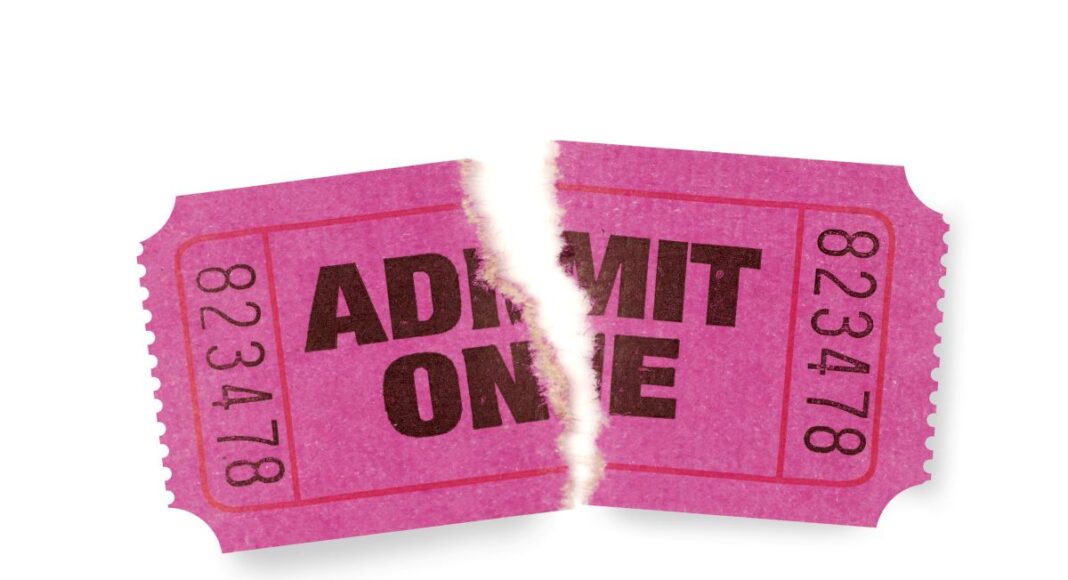Diana Moss writes that a new Massachusetts economic development bill with a provision for limiting the transferability of tickets to live events has succumbed to Live Nation-Ticketmaster’s campaign to regulate the resale ticket market, strengthening its monopoly and harming consumers.
Sports fans and concertgoers have lived with Live Nations-Ticketmaster’s monopoly grip on the ticketing market for decades. Even as Ticketmaster maintained its 70% plus market share in primary ticketing it stealthily moved into ticket resale, where fans buy and sell tickets after they have been sold on the primary market. Between 2019 and 2022, Ticketmaster grew its share of resale to almost one-third of the market.
Together with its monopoly in primary ticketing, Ticketmaster’s incursion into ticket resale creates yet another roadblock for fans, who are confronted by Ticketmaster at every turn. Moreover, the ticketing behemoth is pursuing an aggressive state-level campaign to push for laws that effectively regulate the resale market while it continues to operate, unfettered, in the primary market. This aides Ticketmaster in reinforcing its monopoly in ticketing, and Massachusetts consumers are the most recent victim.
Ticketmaster’s SafeTix mobile ticket program, launched in 2019, is the major channel for buying and selling millions of tickets to live events. If competition holds sway in ticketing markets, myriad benefits will follow. These include a choice of ticketing services for artists, venues, and fans, ticket fees that do not extort fans, and quality and innovation in ticket delivery. But Ticketmaster’s dominant position in ticketing eliminates these benefits for consumers.
A long-awaited monopolization case against Live Nation-Ticketmaster, filed in early 2024 by the U.S. Department of Justice (DOJ), puts Ticketmaster’s SafeTix in the antitrust spotlight. Nearly all tickets issued by Ticketmaster in the primary ticketing market are handled on the SafeTix platform, which the company advertises as a way to make tickets more “secure.” In practice, however, SafeTix is another strategy that Ticketmaster deploys to restrict the transfer of tickets.
Limiting ticket transfers has long been a powerful weapon in Ticketmaster’s arsenal for making it hard for fans to resell tickets at fair prices. It comes as no surprise that the DOJ’s lawsuit alleges that transferability restrictions such as revolving encrypted barcodes that are baked into SafeTix discourage fans from using competing resale ticketing platforms. This protects Ticketmaster’s monopoly in primary ticketing by steering ticket buyers and sellers to SafeTix, while expanding Ticketmaster’s market position in resale.
The DOJ complaint takes the SafeTix competition problem head on. But Live Nation’s executive vice president, Dan Wall, diverts attention from it, tweeting recently that “there are no claims in the pending case about monopoly or misconduct in resale markets.” No reading of the DOJ complaint could possibly support this statement. Indeed, the government’s allegations make it clear that the company engaged in misconduct that restricts competition in the resale market, to the detriment of fans.
As the DOJ and 40 state attorneys general litigate their antitrust case in federal court, an economic development bill in Massachusetts was recently signed into law. Tucked away in Mass Leads: An Act Relative to Strengthening Massachusetts’ Economic Leadership are provisions for regulating the resale market. These include the requirement that online ticket prices be clearly disclosed and a ban on automated ticket purchasing software, or “bots.” These disclosures protect consumers.
But the “Mass Leads” law also allows events venue operators to limit ticket transferability after the buyer has purchased a ticket. The outsized percentage of venues Live Nation controls through exclusive contracts, of course, means that the majority of venues can limit ticket transferability. The Massachusetts regulation requires only that operators make those restrictions “clear and conspicuous” to the ticket buyer up front, and the buyer must acknowledge that they received the information.
Fans won’t be buying any tickets for events in Massachusetts on SafeTix, therefore, unless they agree to the transfer restrictions. And because Ticketmaster has a monopoly in the primary ticketing market, fans have no choice but to agree to them, thus expanding Ticketmaster’s monopoly in the resale market. The “Mass Leads” law is a victory for Live Nation, where protecting Ticketmaster’s monopoly drives much of the company’s strategy and tactics. It is evidence that state lawmakers fell victim to Live Nation’s state-level campaign to limit competition in resale ticketing, under the guise of “protecting consumers.”
Mass Leads’ legal blessing of SafeTix is both anticompetitive and anti-consumer. Were that not enough, “Mass Leads” also brings into sharp focus how state regulation of resale ticketing markets undermines the DOJ’s antitrust case against Live Nation. Antitrust enforcement is the most effective tool for busting the Ticketmaster monopoly and getting permanent relief for the millions of fans who pay monopoly ticket fees. But the Massachusetts law sets up an irreconcilable conflict by enshrining SafeTix in state law.
Needless to say, Massachusetts lawmakers have—unwittingly or not—thrown a monkey wrench into an antitrust case that is squarely focused on protecting consumers. And the “Mass Leads” law puts the Massachusetts Attorney General’s office, which signed onto the DOJ complaint, in an untenable position. Live events fans deserve far better than for state regulation of ticketing markets to be butting heads with antitrust enforcement. State legislators should stand down until the DOJ’s antitrust case runs its course.
Author’s Disclosure: Diana Moss works for the Progressive Policy Institute. PPI is supported by corporations, individuals, and foundations such as the Lumina Foundation, Peterson Foundation, and Arnold Foundation. No funding source influenced the arguments expressed in this article or stands to benefit from them.
Articles represent the opinions of their writers, not necessarily those of the University of Chicago, the Booth School of Business, or its faculty.






